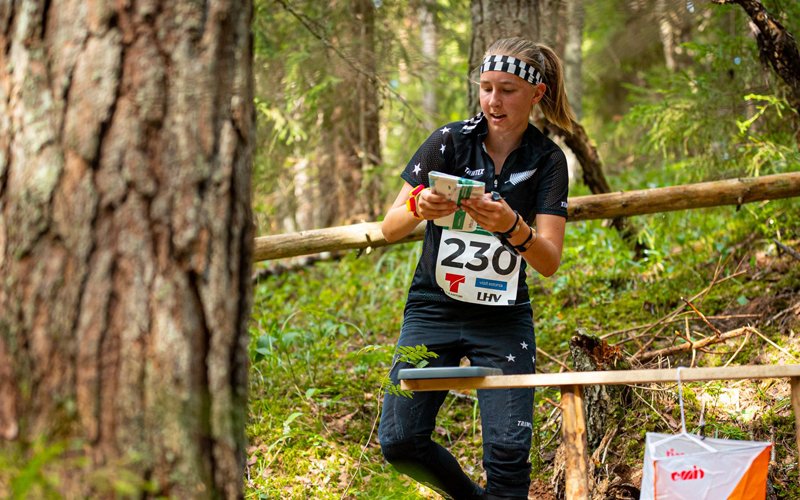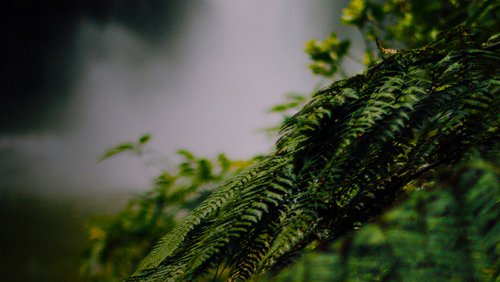12 Aug 2024
Briana Steven went straight into Mechanical Engineering second year, discovered biomechanical engineering and set her sights on postgraduate studies. She found a PhD project on arterial blood fluid dynamics and at the same time, was awarded a Fulbright Scholarship, so she headed to California to get her Master’s, before returning to continue her PhD. And it’s not only studies that have taken Briana abroad – she’s a highly accomplished orienteer who has competed in more than a dozen countries.
When did you first get involved with orienteering?
My parents launched me straight into it, practically from birth. I’ve been orienteering since before I was tall enough to see over a control (the markers each person must navigate in order to complete the race).
What three words sum up orienteering for you?
My favourite phrase is “cunning running” because it covers the two main parts: the physical running through the forest, and the technical navigation through complex hills, rocks, bushes and buildings.
What do you love most about orienteering?
I’ve always found plain running a bit boring, and orienteering is such an exciting challenge every time, as each course is completely different from the last, often in an entirely new place. Plus, now I have many friends for life from this sport.
Where has it taken you?
I’ve orienteered in 13 countries so far, mostly in Europe, where the sport is most popular, but also on quite a few trips to Australia when I was part of the national secondary school team. Possibly more surprising though is how far it’s taken me in New Zealand. I’ve been to tiny corners of the country, random schools and gardens in every major city and over nearly every inch of the hills and forests around Christchurch.

Briana Stevens competes at the 2022 European Orienteering Championships in Rakvere, Estoni. Photo: Aldis Toome
What is your greatest achievement with orienteering?
I was very happy to make the New Zealand team that competed at the World Championships last year in Switzerland. I’ve been part of the Junior World Orienteering Championships team twice now and have made incredible memories with everyone else selected. I am also really pleased to have been selected as the coach of the Junior World Orienteering Championships team for the second year.
What does training involve?
Orienteering has two aspects which both need training, so I maintain a running training plan similar to that of a distance runner, but with orienteering navigation trainings sprinkled in once or twice a week. In those we try to train our navigation skills like picking complex routes quickly, reading ahead to reduce time loss, or simplifying a tricky area to navigate through it more efficiently.
What has been your biggest challenge with orienteering?
I have always preferred the technical navigation side more as I enjoy puzzles, problem solving and stretching my brain, so the physical fitness side has always lagged behind. I have to work hard at keeping up my running training schedule so I can stay competitive with the other women in the elite grade.
Tell us something about your involvement with orienteering that might surprise people.
Orienteering is entirely volunteer-run, so everyone who helps out will spend multiple hours on it, purely for the love of it. I probably spend around 20–25 hours per week on orienteering, split between my own interests and training, coaching and event volunteering (I’m pretty much addicted).
Why did you choose engineering as a career?
I found classes like maths and science much more enjoyable and easier than other classes, and I enjoyed the methodical way you solve through problems to a definitive answer, so engineering was an obvious path. Also, my dad is also an engineer, so I knew becoming one would let me work on cool projects and help solve problems for my community.
Does being an engineer bring any advantages to the way you approach orienteering?
I think the problem-solving mindset is very similar between the two and I’m not the only one who thinks that – the majority of orienteers are engineers or doctors!
What’s next for you?
I’m working hard on my own orienteering training, along with coaching. I'll be competing in two World Cup rounds, the World Orienteering Championships, and the World University Orienteering Championships, and also heavily focused on preparing the junior orienteers for their competition in the Czech Republic in July.
This article was first published in the June 2024 issue of EG magazine.




